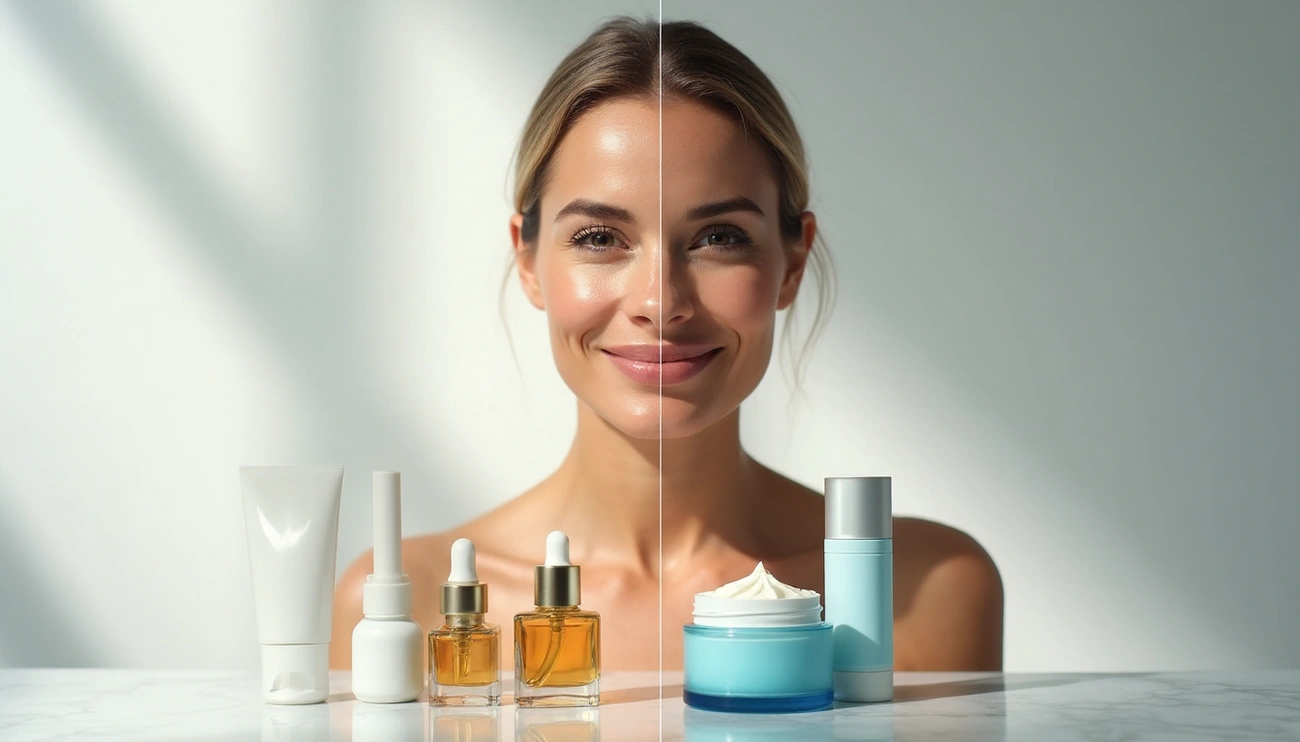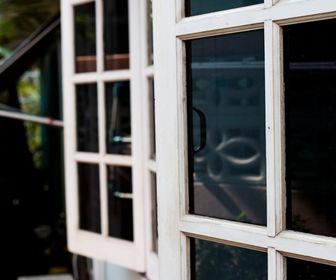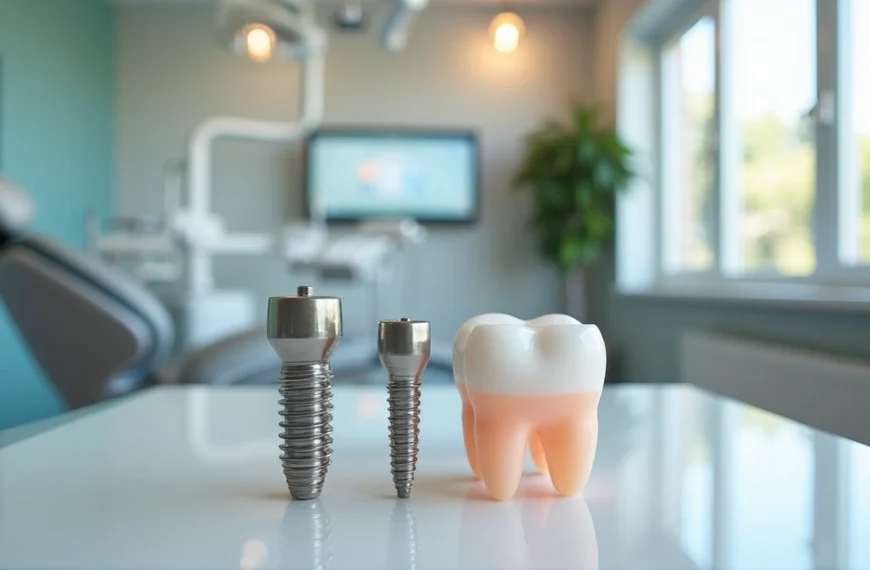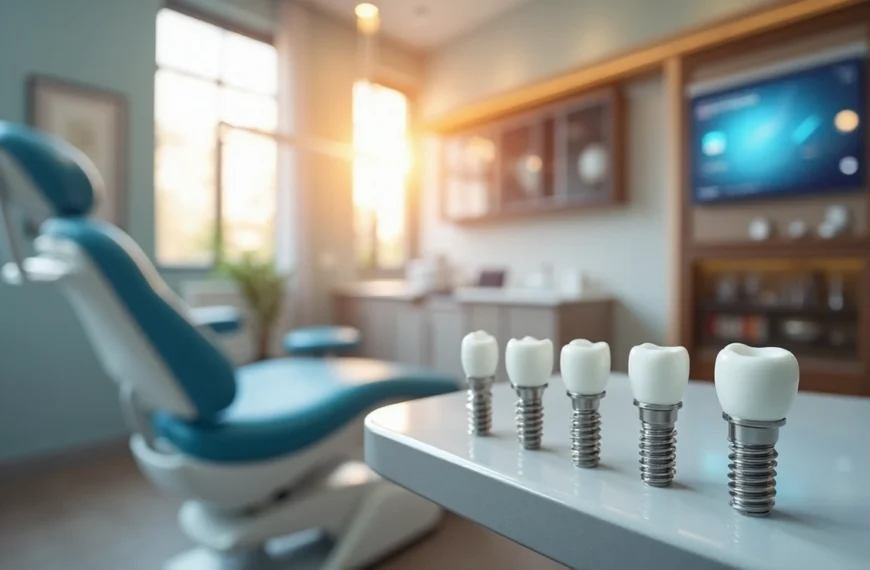You don’t need a complicated skincare routine to fight aging skin, regardless of what beauty companies want you to believe. Your skin actually starts producing nowhere near enough collagen between ages 25 and 30. This explains why people notice those pesky fine lines and aging signs sooner than they expect.
Many drugstore treatments contain youth-boosting ingredients that work well. Keep in mind that you won’t see changes overnight. A good anti-aging skincare routine can tackle common issues like wrinkles, fine lines, dark spots, droopy eyelids, and dark circles. Dermatologists believe you can start your anti-aging skincare journey at any time – whether you’re a beginner or searching for the best options after 50.
The sort of thing I love about this piece is how it breaks down dermatologist-approved solutions. Simple ingredients like retinol (the undisputed king of anti-aging) work wonders. Products such as TruSkin vitamin C serum help minimize sun damage and soften fine lines. The best part? These effective anti-aging products are accessible to more people at local drugstores and big-box stores. This proves you don’t need expensive luxury products to create a skincare routine that works.
The biggest skincare myths dermatologists want to debunk
Image Source: BookTrib
“”There’s a desire for simplicity in skincare,” says dermatologist Heather Rogers, MD. “People are becoming more selective in the products they use, picking items that can address their needs long term instead of just buying into the latest fad—and skin is healthier for it,” she says.” — Heather Rogers, MD, Board-certified dermatologist, founder of Modern Dermatology
Dermatologists often see patients who feel lost in the maze of skincare myths. Clear guidance helps people create an effective anti aging skin care routine without wasting their time and money.
You need a 10-step routine to see results
Korean skincare routines with multiple steps have become hugely popular. Dermatologists say using more products doesn’t always give better results. Your skin might feel overwhelmed when you use too many products at once. This can lead to irritation and damage your natural skin barrier. A simple routine with three to four well-chosen products works better than a complex 10-step process. The best skincare regimen for aging skin needs just these basics:
- Cleanser
- Treatment serum or active ingredient
- Moisturizer
- Sunscreen (daytime)
Most dermatologists don’t have time for complex routines. One doctor admitted she only manages to put on sunscreen most mornings. So it’s smarter to stick with a few quality products than struggle with too many steps.
Natural always means better
“Natural” is mostly a marketing trick, not a real standard that skincare products must follow. Natural ingredients can be good, but they’re not automatically safer or more effective than synthetic ones.
A 2023 study showed that more than 94% of products labeled “natural,” “clean,” or “healthy for the skin” had ingredients that could cause contact dermatitis. Some natural substances can trigger serious allergic reactions. Essential oils often cause skin inflammation despite coming from natural sources.
Expensive products work better
Product effectiveness doesn’t depend on its price tag. A dermatologist at Spring Street Dermatology in New York City says expensive doesn’t mean better. Marketing, packaging, and sometimes special ingredients make the difference between affordable and pricey products.
From a practical viewpoint, Estée Lauder’s Crème de la Mer costs about £80 for just 15 milliliters – around 100 times more than typical drugstore options. Dermatologists point out there’s “not a good correlation between price and quality of your skincare”.
Many affordable products have similar effective ingredients as luxury brands. Products like TruSkin vitamin C serum are great value without the premium price tag. Quality skincare is available to everyone, including those looking for the best skin care for women over 50.
The 5 ingredients dermatologists trust the most
Image Source: IPSY
Scientists have identified five powerful ingredients that are the foundations of the best anti-aging skin care routine. These ingredients create an effective skincare regimen for aging skin based on solid research.
Retinol: The gold standard for aging skin
Vitamin A derivatives stand out as the most versatile skincare ingredients around. 96.8% of dermatologists strongly recommend retinoids to treat fine lines and wrinkles. These compounds boost collagen production and create new blood vessels that improve skin color. You’ll need some patience though – results usually take 3-6 months to show up, and the best results come after 6-12 months of regular use.
Vitamin C: Brightens and protects
88.7% of dermatologists rank Vitamin C among their top picks to reduce wrinkles. This powerful antioxidant fights free radicals from pollution and your body’s natural processes. Research shows that using it daily for three months or more helps with both fine and deep wrinkles while making skin look better overall. On top of that, it teams up with sunscreen to shield your skin from UV damage more effectively.
Hyaluronic Acid: Deep hydration for all skin types
This amazing molecule holds up to 1000 times its weight in water, making it great at keeping skin hydrated. HA stops water from escaping through your skin’s surface. Studies show that lighter HA molecules (around 130 kDa) work best, boosting skin elasticity by 20% in just one month. Both 50 and 130 kDa forms substantially improved wrinkle depth and skin texture after 60 days.
Niacinamide: Calms, smooths, and strengthens
Niacinamide builds keratin and makes your skin stronger, smoother, and brighter. It boosts hydration by improving your skin’s lipid barrier, reduces redness through its anti-inflammatory properties, and shrinks the appearance of pores. Research proves that 5% niacinamide can fade dark spots and improve fine lines and wrinkles.
Sunscreen: Your best anti-aging defense
Almost every dermatologist (96.8%) agrees that sunscreen is a vital anti-aging product. People who use it daily face a much lower skin cancer risk – studies show invasive melanomas happen almost four times less often in regular sunscreen users. Daily users showed no visible signs of aging over 4.5 years. Both mineral and chemical sunscreens protect against UV damage well, but minerals work better if you have sensitive skin.
How to build the best anti aging skin care routine in 2025
Image Source: Health
A best skincare regimen for aging skin depends on knowing which products to use and when to apply them. Research shows that consistent use matters more than having a complex routine.
Morning routine essentials
Your day should start with a gentle cleanser that prepares your skin for active ingredients. The next step is vitamin C serum—it fights free radicals and boosts sunscreen’s performance. Add moisturizer to lock in hydration, and finish with broad-spectrum SPF 30+ sunscreen, which remains the most significant anti-aging step.
Night routine essentials
Double cleansing works best at night—start with an oil-based cleanser to remove makeup, followed by a water-based cleanser. Next comes retinol, which speeds up cellular turnover during sleep. The final step is a rich moisturizer that repairs and nourishes your skin overnight.
How to layer your products correctly
Products should go on from thinnest to thickest consistency. Your skin needs 1-2 minutes between layers to absorb each product properly. The ideal order is cleanser, toner, treatment serums, eye cream, moisturizer, and oil if needed.
When to use TruSkin Vitamin C Serum
The best time to apply vitamin C is in the morning after cleansing. This antioxidant shields your skin from UV damage throughout the day. Research suggests that using vitamin C every eight hours provides better results.
Signs your routine is working
You should notice better hydration within weeks and refined texture in 3-4 months. Your skin will have fewer breakouts, a brighter tone, and smoother texture. Note that consistent application for at least three months leads to the best results.
What to do when your skincare isn’t working
The best anti aging skin care routine might not always give you the results you want. You need to know when something isn’t working so you can adjust your approach.
Common signs of irritation or overuse
Your skin will tell you when something’s wrong through redness, burning sensations, or increased sensitivity – clear signs that products don’t agree with your skin. Excessive flaking or peeling beyond normal retinol adjustment periods points to overexfoliation. Watch for breakouts in new areas or unexpected texture changes.
How to simplify your regimen
Start fresh with just the simple essentials – a gentle cleanser, moisturizer, and sunscreen. Let your skin reset for two weeks. Add products back one at a time with 3-5 days between each new addition. The core ingredients matter more than having multiple products that do the same thing. Test new products on your inner arm before they touch your face.
When to ask a dermatologist
Your skin needs professional help if problems last more than 4-6 weeks after simplifying your routine. Unexpected rashes, bad reactions, or conditions that get worse despite regular care need medical attention. A yearly skin check makes sense as preventative care, especially if you use retinoids or have skin concerns in your family history.
Best skin care for women over 50: What changes to make
The skin needs extra moisture as estrogen drops cause dryness. Rich, emollient products and peptide formulations can support your skin’s collagen. Creamy cleansers work better than harsh ones, and yes, it is time to think over prescription-strength retinoids to get better results. Chemical exfoliants prove gentler and more effective than physical ones on aging skin.
Conclusion
A simple, consistent routine with proven ingredients will give you the best results in anti-aging skincare. You’ll get better outcomes for your skin and wallet by following dermatologists’ recommendations instead of falling for marketing claims or complex routines.
Most people do better with 3-4 quality products than complicated regimens. You really just need a cleanser, treatment serum, moisturizer, and sunscreen to build an effective anti-aging routine.
On top of that, expensive doesn’t mean better. Many affordable drugstore products have similar active ingredients as luxury brands. TruSkin vitamin C serum gives professional-grade results without the premium price tag.
Retinol, vitamin C, hyaluronic acid, niacinamide, and sunscreen are the foundations of dermatologist-approved skincare. These ingredients work together to target multiple aging signs through different mechanisms.
New skincare routines take time to show results. Most active ingredients need 3-6 months of regular use to make noticeable changes. There are no quick fixes in evidence-based skincare.
Your skin’s response is a vital indicator. Watch out for signs of irritation or bad reactions – sometimes less works better. A simpler routine or a dermatologist’s help will give your skin the right care as it changes with time.
Science, not hype, makes skincare work for aging skin. This knowledge helps anyone create a routine that supports skin health long-term, whatever their age or previous skincare habits.
Key Takeaways
Dermatologists reveal that effective anti-aging skincare is simpler and more affordable than the beauty industry suggests, focusing on proven ingredients rather than complex routines.
• Skip the 10-step routine—dermatologists recommend just 3-4 quality products: cleanser, treatment serum, moisturizer, and sunscreen for optimal results.
• Price doesn’t equal effectiveness—many drugstore products contain identical active ingredients as luxury brands at a fraction of the cost.
• Focus on five dermatologist-trusted ingredients: retinol, vitamin C, hyaluronic acid, niacinamide, and sunscreen for comprehensive anti-aging benefits.
• Patience is essential—most skincare ingredients require 3-6 months of consistent use before showing significant improvements in skin texture and appearance.
• Listen to your skin and simplify when needed—irritation or adverse reactions often mean you’re using too many products or incompatible ingredients.
The key to successful anti-aging skincare lies in consistency with evidence-based ingredients rather than following trends or using expensive products. Start simple, be patient, and adjust based on your skin’s response for long-term results.
FAQs
Q1. What are the essential components of an effective anti-aging skincare routine in 2025? An effective anti-aging skincare routine typically consists of 3-4 key products: a gentle cleanser, a treatment serum (such as vitamin C or retinol), a moisturizer, and a broad-spectrum sunscreen. This minimalist approach is often more effective than complex multi-step routines.
Q2. Are expensive skincare products necessarily better for anti-aging? No, expensive products aren’t always better. Many affordable drugstore options contain the same effective ingredients as luxury brands. The price difference often comes down to marketing and packaging rather than efficacy. It’s more important to focus on products with proven ingredients regardless of price.
Q3. What are the most trusted anti-aging ingredients recommended by dermatologists? Dermatologists consistently recommend five key ingredients for anti-aging: retinol, vitamin C, hyaluronic acid, niacinamide, and sunscreen. These ingredients have been scientifically proven to address multiple signs of aging and improve overall skin health.
Q4. How long does it take to see results from an anti-aging skincare routine? Patience is key when it comes to skincare. Most active ingredients require at least 3-6 months of consistent use before showing significant results. Some improvements in hydration may be noticeable within weeks, but more substantial changes in skin texture and appearance typically take several months.
Q5. What should I do if my skincare routine isn’t working? If your routine isn’t working, first simplify it to basics: cleanser, moisturizer, and sunscreen. After two weeks, gradually reintroduce products one at a time. If issues persist for 4-6 weeks after simplifying, or if you experience sudden rashes or severe reactions, consult a dermatologist for personalized advice.











![No Win No Fee Lawyers: The Hidden Truth About Settlement Cuts Legal representation through no win no fee lawyers gives clients a way to fight cases without paying anything upfront. Many clients don't know that these services take a big chunk of money after winning the case. Lawyers usually take 25% to 40% of what you win as their contingency fee. The amount lawyers take from settlements can add up fast. A $100,000 settlement means your attorney gets $30,000 if they charge a 30% fee after winning your case. Your solicitor's cut might be £10,000 from a £30,000 compensation award, based on your agreement percentage. This payment model stays pretty much the same for no win no fee lawyers in different places, though percentages can change. This piece breaks down what you need to know about contingency fee deals. You'll learn about standard fee ranges, extra costs beyond the basic fee, and times when this payment setup might not work in your favor. Smart clients should think over these money matters before signing up with a lawyer to make better choices about their legal help. What No-Win No-Fee Really Means Image Source: Express Legal Funding A no-win no-fee arrangement, also called a Conditional Fee Agreement, changes the way people get legal help. This payment approach removes the need to pay legal fees upfront and creates a partnership between clients and their attorneys. How contingency fees work No-win no-fee agreements are based on contingency fees. Lawyers get paid only when they win compensation for their clients. Most lawyers take between 25% and 40% of the final amount, based on how complex the case is and where it's filed. Lawyers take their cut after winning the case. To name just one example, see a case where a lawyer wins £30,000 in compensation with a 33% fee - they would receive £10,000. On top of that, some law firms use sliding scales where they charge less for quick settlements and more if the case goes to trial. The law requires a written agreement before any work starts. This paperwork spells out the lawyer's percentage, what costs you'll need to cover, and other key details. What happens if you lose the case The meaning behind "no-win no-fee" is clear - losing your case means you won't pay your lawyer anything. All the same, you should know about a few money-related details. You won't owe your lawyer when you lose, but some deals might make you pay for court fees, expert witnesses, or other case expenses. The other side could also ask you to pay their legal costs. Many lawyers suggest getting "After Event" insurance to protect their clients. These policies cover any costs if you lose your case, which makes the no-win no-fee setup much safer. Why lawyers offer this model Lawyers want to make legal help available to more people, so they offer these payment plans. This setup helps people who don't have much money take legal action when they have valid claims. The payment structure motivates lawyers to work hard. They only get paid by winning cases, which pushes them to get the best results possible. Lawyers carefully assess each case before taking it on a no-win no-fee basis. They usually accept cases that have a good chance of winning, since they put in lots of time and resources without any guaranteed payment. The Real Cost: How Much Do Lawyers Take from a Settlement Image Source: Greiner Law Corp. The true cost of no-win no-fee legal representation becomes clear once we look at contingency fees. Many clients feel surprised to see a big chunk of their settlement checks going to their attorney's fees. Typical percentage ranges (25%–40%) No win no fee lawyers typically ask for 25% to 40% of the total settlement amount. Personal injury attorneys usually take 33.3% (one-third) of the awarded compensation[101]. Lawyers and clients agree on this percentage before any work starts on the case. Several factors shape the final percentage. Your chances of winning, case complexity, and the work to be done play key roles in determining the attorney's cut. Some areas have laws that cap the maximum contingency fees for specific types of cases. Sliding scale based on case complexity Law firms often use a tiered fee system that changes with the case stage and complexity. This scale rewards quick settlements while paying attorneys fairly if more work becomes needed. The fee might start at 30% if the case settles before lawsuit filing. This number could climb to 35% after filing or reach 40% if the case goes to trial. Law firms often group cases by complexity: 10%-20%: Simple cases with straightforward settlements 25%-35%: Typical personal injury cases 35% and above: Complex cases requiring extensive resources Examples of payout breakdowns These ground examples show how fees affect settlements: A $15,000 settlement with a 33.3% contingency fee.pdf) puts $5,000 in the attorney's pocket, leaving $10,000 for the client. Similarly, from a $100,000 settlement with a 33% fee, the attorney gets $33,000 while the client receives $67,000[102]. Complex cases tell a different story. A $100,000 settlement with a 30% fee plus $5,000 in extra costs leaves $65,000 for the client after all deductions. These fees substantially change the client's final payout. Hidden Costs You Might Not Expect Image Source: Nelson Personal Injury Lawyers Beyond percentage-based fees, clients often feel surprised by extra costs that can reduce their final compensation by a lot. These hidden costs show up in the fine print of no-win no-fee agreements. You should think over these details before signing. Court filing and expert witness fees Legal proceedings come with unavoidable court filing fees. These charges differ by jurisdiction. They usually range from $30 for small claims to several hundred dollars for complex civil lawsuits. Expert witnesses can be expensive, with hourly rates ranging from $150 to $1,000 based on their credentials and testimony complexity. Expert witnesses charge more for court appearances than consultation work because of added pressure and prep time. Clients might still need to pay experts for their prep work even if the case settles before trial. Medical report and investigation costs Medical documentation is a vital part of many legal claims. These costs include fees to release medical records, create specialized reports, and prepare documents. Investigation costs cover evidence gathering, police reports, witness interviews, and other fact-finding work needed to build a strong case. Of course, some firms say they'll cover these expenses upfront, but clients don't completely avoid these costs. When these costs are deducted from your compensation Law firms take these expenses from the settlement amount before they calculate their percentage fee, though each firm handles this differently. Some lawyers subtract these costs after figuring out their contingency fee, which changes how much money clients end up with. Most firms pay case-related costs during the process and get their money back from the settlement. The defendant usually pays most simple legal costs and disbursements in successful cases, but not always everything. Insurance protects clients from costs in unsuccessful claims at many law firms, but this protection isn't guaranteed. Clients should review their agreements carefully since they might still need to pay specific expenses even if they lose their case. When No-Win No-Fee Might Not Be the Best Option Contingency fee arrangements give many people access to justice. However, this payment model doesn't always work in a client's best interests. Knowing these limitations helps clients make better decisions about their legal representation. Cases with unclear liability Lawyer no win no fee arrangements work best in cases where fault is clear. We assessed the probability of success before taking contingency cases. Lawyers might turn down cases if there isn't enough evidence of the other party's negligence or if liability isn't certain. Cases with multiple responsible parties create more challenges. The situation gets complicated fast when several parties share liability. Lawyers are less likely to take these cases on contingency. They need to be confident they can prove the other party's negligence before accepting a case. Low-damage or low-payout claims Small claims often don't work well with the contingency model, even with real injuries. Cases that have minimal injuries or limited financial damages might not bring enough compensation to cover legal costs. The potential settlement needs to be big enough to pay for investigations, witness interviews and court fees. Personal injury lawyers often turn down cases where the "compensation potential" is too small. This doesn't mean the claim isn't valid - it just means the economics don't add up for a contingency arrangement. Situations where hourly billing may be better Hourly billing has clear advantages in certain cases. Clients see exactly what they're paying for - every hour worked and task completed. This model works well for cases that need lots of attention but don't have clear financial outcomes. Complex litigation with opposing parties works better with hourly billing and a retainer fee. Clients have more control over their case and don't feel pressured to settle quickly. Cases that need extensive preparation but have uncertain outcomes fit the hourly model better. Lawyers can spend the time needed without worrying about contingency limits. This approach often leads to better representation, especially for complex legal issues that need special expertise. Conclusion Understanding the Full Picture Before You Sign No-win no-fee arrangements offer legal representation without upfront costs. Of course, this seems attractive at first glance. In spite of that, you need to think about how these agreements can affect your final compensation. Legal fees usually range from 25% to 40% of your settlement - but that's just the start. You'll face more deductions like court filing fees, expert witness costs, and charges for medical documentation. What looks like a "free" service ends up taking a big chunk of your compensation to cover legal expenses. These arrangements work best in specific situations - cases with obvious liability, substantial damages, and solid evidence. If you have a low-value claim or complex liability issues, traditional hourly billing might serve you better. Without doubt, you should ask for clear explanations of all possible costs before signing anything. Read the fine print closely, especially when you have to deal with expenses in unsuccessful cases. Ask to see sample settlement breakdowns that show all deductions. This helps you picture what you might actually take home. Your choice to go with a no-win no-fee arrangement depends on your situation. This model helps if you don't have money to pursue valid claims. But if you have a strong case and enough funds, other fee structures might let you keep more of your compensation. Whatever payment model you choose, knowing exactly how much lawyers take from settlements helps you make better decisions. This knowledge lets you approach legal representation with real expectations and better control over your money. FAQs Q1. What percentage of a settlement do no-win no-fee lawyers typically take? No-win no-fee lawyers typically charge between 25% to 40% of the final settlement amount as their contingency fee. The exact percentage often depends on the complexity of the case and the stage at which it is resolved. Q2. Are there any hidden costs in no-win no-fee arrangements? Yes, there can be additional costs beyond the lawyer's percentage fee. These may include court filing fees, expert witness costs, medical report expenses, and investigation costs. These expenses are usually deducted from the settlement amount before or after the lawyer's fee is calculated. Q3. What happens if I lose my case in a no-win no-fee arrangement? If you lose your case, you generally won't have to pay your lawyer's fees. However, you might still be responsible for certain expenses like court costs or the opposing party's legal fees. Many lawyers offer insurance to protect clients from these potential costs in case of an unsuccessful claim. Q4. When might a no-win no-fee arrangement not be the best option? No-win no-fee arrangements may not be ideal for cases with unclear liability, low-value claims, or complex legal issues requiring extensive preparation. In these situations, traditional hourly billing might be more appropriate and potentially more cost-effective for the client. Q5. Can I negotiate the percentage a lawyer takes from my settlement? Yes, the contingency fee percentage is often negotiable. It's typically agreed upon and formalized in writing before the lawyer begins working on your case. Don't hesitate to discuss the fee structure with your lawyer and ask for a detailed breakdown of potential costs and deductions.](https://consumersweek.com/wp-content/uploads/2025/06/No-Win-No-Fee-Lawyers-The-Hidden-Truth-About-Settlement-Cuts-870x570.webp)



